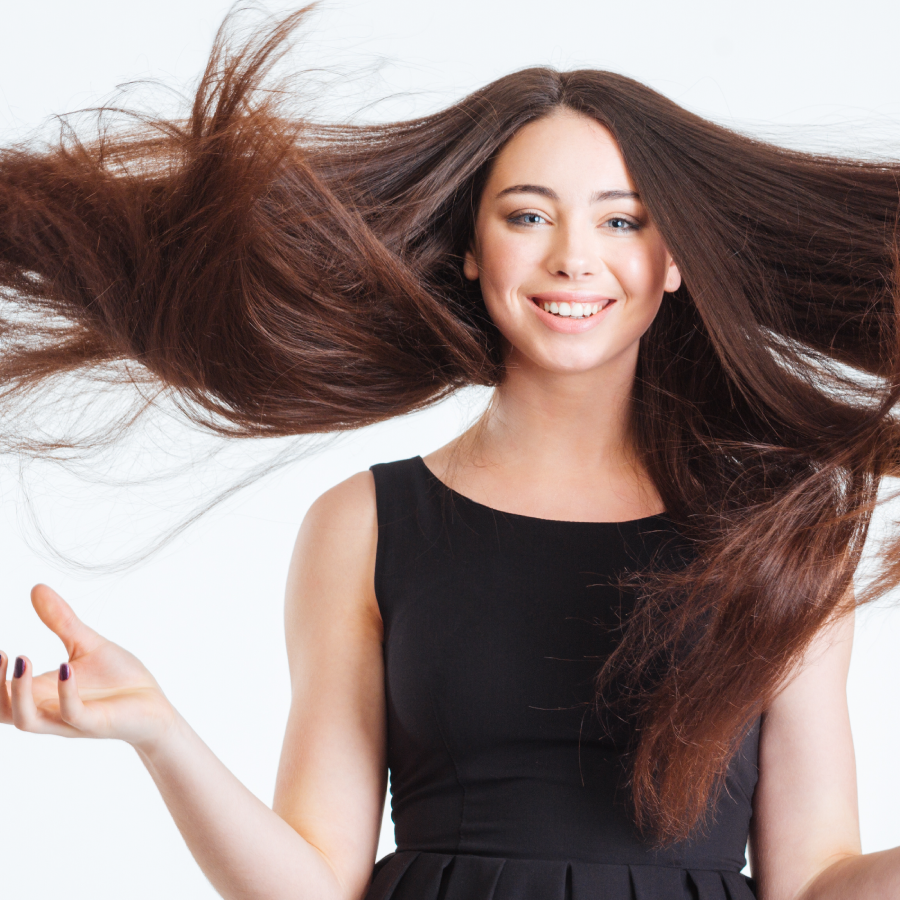News
Does Collagen Really Help Hair Growth?

If you're losing your hair, what may it be because of? Although hair loss is common, many factors could be to blame. But collagen problems in the body may significantly cause hair loss because low collagen levels are associated with thinning hair, brittle hair, and poor scalp health.
That's why an optimum level of collagen is beneficial for both preventing and reversing hair loss and promoting healthy hair growth. Let's learn in detail about collagen's role in hair growth.
Does Collagen Help To Prevent Hair Loss?
Collagen is a protein that serves as the body's "glue," giving our skin resilience and suppleness and helping to replenish the cells that naturally die off as we age.
Collagen rescues the day by providing nourishment, strength, and moisture for healthy hair. Because collagen peptides are more rapidly absorbed into the body than other treatments for hair loss. Collagen tends to work more quickly as well. In addition to reducing hair loss, collagen improves circulation, which carries essential nutrients to the hair follicles.
Benefits Of Collagen For Hair Growth
Collagen's benefits for hair growth are as follows:
-
Collagen reduces the occurences of Bald Spots / Thinning Hair
The expression "your skin is showing" may sound familiar. However, even in places where hair isn't easy to see, like on the top of most people's heads, the epidermis is still needed for hair growth.
Most people probably don't think about skin when they think about hair. The dermis, also called the skin, is located beneath the scalp. The dermis, or the layer of skin that contains the hair follicles, is primarily composed of collagen. Collagen, as was previously mentioned, can increase your skin's pliability and strength. Numerous studies have linked aging skin to hair loss; therefore, preventing hair thinning and loss may necessitate more robust skin. However, more study is needed to confirm this.
-
Collagen reduces split ends, stopping hair breakage
As humans age, their bodies become less capable of producing collagen. Because of this, your hair becomes rigid and prone to breakage and split ends. Collagen not only strengthens the hair but also makes it more hydrated. Frizz, brittleness, and split ends are all signs of dry hair. Adding collagen to the hair's structure will provide the necessary moisture and remedy these problems.
-
Collagen supplements offer improved nutrient delivery to hair follicles
Collagen in daily supplements not only aids digestion but also works in conjunction with other substances like hyaluronic acid to sustain, hydrate, and repair the dermal and follicular skin structures. This boosts the follicle's ability to absorb nutrients, leading to moisturized hair and strengthening the dermal blood vessels.
-
Improving Elasticity
According to experts, collagen is an amino acid, and the hair follicle cells use amino acids to create the keratin protein responsible for hair growth, strength, and suppleness. As a result, collagen increases the hair's strength, elasticity, and general quality, and you also gain the additional moisturizing advantages of Omegas 3 and 6.
-
Less Grey Hair
Graying hair is mainly genetic; however, free radical damage can speed up the process. The pigment produced by melanocytes is maintained in specialized organelles called melanosomes, which impart color to hair. Simply put, some evidence suggests that reactive oxygen species can harm melanocytes, which in turn may affect melanin synthesis.
There is some evidence that collagen can help reduce the effects of air pollution by neutralizing free radicals (atoms with unpaired electrons). Studies in vitro have shown that collagen contains antioxidant capabilities; however, it is still being determined whether or not these findings translate to the real world. Still, if other studies verify that collagen has antioxidant capabilities, then consuming collagen could delay the onset of grey hair. A healthier hair follicle reduces the visibility of grey hair.
What are the adverse effects of collagen hair treatment?
No affirmative response exists. There is no risk connected with the recommended dose of collagen consumption. When collagen is applied topically, hypersensitive individuals may experience an allergic reaction. However, such reactions to collagen-based hair treatments are comparatively rare. Those with a particularly sensitive scalp or an allergy to hair treatment ingredients are more prone to experience this. Always perform a patch test and consult your dermatologist before utilizing new skin care products.
Collagen is an excellent remedy if you're experiencing hair difficulties. However, it is best to consult a dermatologist if you are experiencing any problems, and you should only purchase collagen products if your doctor permits you to do so.
The Takeaway
Collagen improves hair quality by reinforcing the epidermis around the hair follicles with amino acids to build hair proteins. Also, it helps keep hair follicles from getting damaged, which could ultimately stop greying.
Since hair follicles need protein to thrive, consuming collagen supplements like Pure Marine Collagen Reglow may help stimulate healthy hair growth.
FAQ
Can collagen help with hair growth?
Collagen is known to thicken hair. It has the potential to boost hair health and prevent hair loss, in addition to promoting strong nails and smooth skin. Collagen's ability to make skin more pliable extends to your scalp as well.
What type of collagen is ideal for hair?
Collagen types 1 and 3 are the most effective for hair and skin health.





































